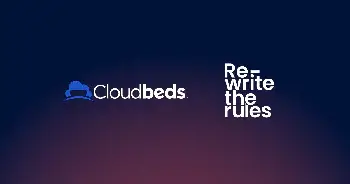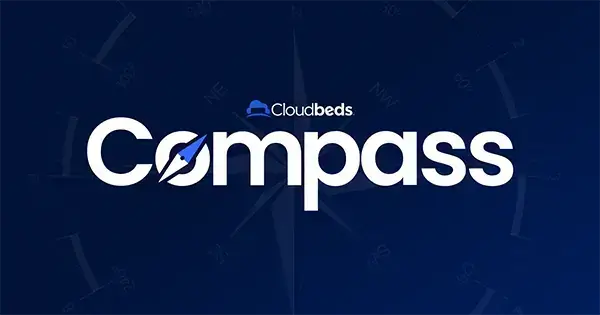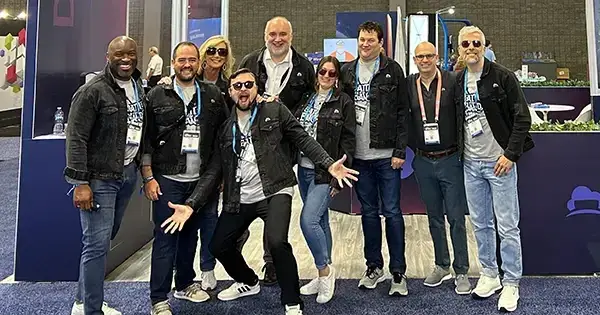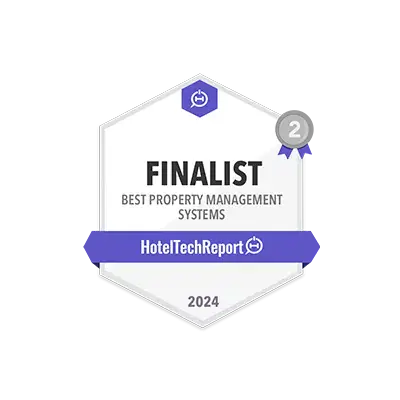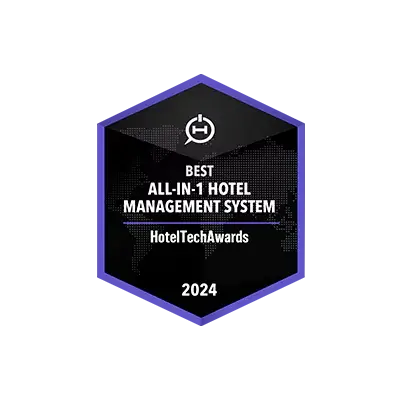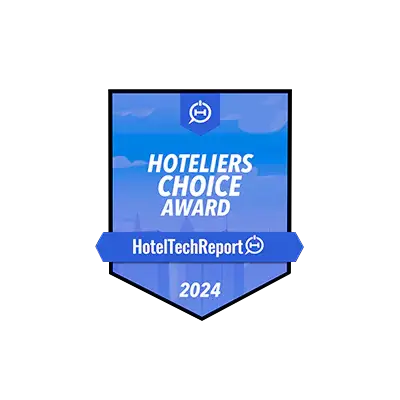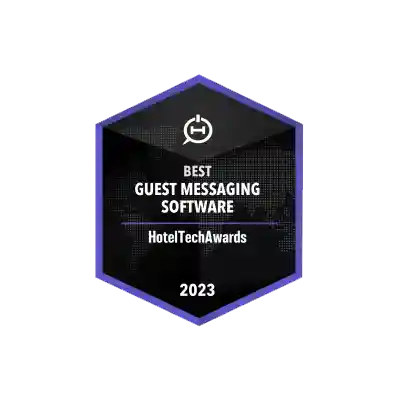Understanding the top 5 guest
expectations (+ how to exceed them)

This quote rings true in the hospitality industry, where hoteliers are on an ongoing quest to deliver unique experiences that not only meet but exceed guest expectations.
Read on to learn more about how to tell the difference between guest wants and needs and how to exceed expectations every time to deliver the ultimate guest experience.
Guest expectations in the hospitality industry are behaviors or actions guests anticipate while interacting with your property. Typical expectations include comfort, cleanliness, service, convenience, value, and safety; however, hotel guest expectations are everchanging as new technology advancements, service offerings, and amenities emerge. Some expectations will always exist in the industry, such as a convenient location, hotel room amenities like wifi, comfortable beds, room service, helpful staff, and clean rooms. However, in 2020, a wave of new guest expectations entered the market that fundamentally changed the industry (and have stuck around years later). What are guest expectations?
Expectations are formed based on guests’:
- Previous experience with your property. If a guest has visited your hotel in the past, they will expect a consistent experience.
- Opinions from others. Reviews and word of mouth from friends and family establish expectations within a guest’s mind.
- Previous experience with a competitor. Staying with a competitor will create an expectation of what your property should include.
- Marketing materials. How you showcase your property online and across platforms such as your website, social media channels, and online travel agencies (OTAs) will impact guest expectations.
In this clip from The Turndown Podcast, Richard Brosal, Co-Founder and Owner of Jet Luxury Resorts, explains how guest expectations have changed since the pandemic. From frustration due to restrictions to entitlement to upgrades, guests are more demanding than ever.
Hoteliers must adapt to these changing expectations to deliver a positive customer experience that drives satisfaction. New expectations include:
- Self-service options. 53.6% of travelers want contactless check-in/out permanently adopted by 2025.
- Housekeeping opt-in. More than 70% of customers support the shift away from daily housekeeping.
- Texting in place of emails. 61% of consumers want the ability to two-way text with a business.
Why are guest expectations so important?
The key to customer satisfaction is understanding the relationship between guest expectations and experience. Meeting or exceeding expectations will result in positive reviews and loyalty. At the same time, under-delivering will result in poor reviews and ratings, significantly hindering performance.
Understanding guest expectations can also help hoteliers develop their marketing messaging and pre-stay communications. By identifying your target audience and understanding their values and expectations, you can establish a solid competitive advantage that will help you differentiate from competitors.
From there, you can create consistent messaging on your website, social media channels, and throughout your property to reinforce expectations across channels.
How can you identify your guests’ expectations?
According to a Salesforce study, 63% of consumers expect companies to understand their needs and expectations.
But how do you know if your property is meeting expectations?
Ask your guests! Guest feedback is an invaluable tool for determining whether you’re meeting guest expectations. Using qualitative and quantitative feedback, you can understand how guests’ perceptions matched their hotel experience.
Using guest messaging solutions, satisfaction surveys can be sent to guests mid and post-stay. We recommend sending out surveys before a guest’s stay is complete in case guest service recovery is required so you can catch a bad review before it happens.
The following guest satisfaction surveys can be used to collect feedback:
- Customer satisfaction score (CSAT)
- NPS
- Customer Effort Score
In addition to surveys, you can use online reviews to gauge expectations. Positive and negative reviews will provide invaluable insights into how well your property meets expectations. Ensure you consistently monitor reviews on all your OTA channel listings, review sites, and social media mentions and respond to positive and negative reviews.
What are some ways to meet and exceed guest expectations?
As Richard Branson said in his quote, you want not only to meet but exceed guest expectations in unique ways.
To exceed expectations, you must first understand who your guests are and what they value. To create personalized experiences that are bound to stand out, map out your customer journey and create a baseline standard for what ‘meet expectations’ looks like for your guests. From here, identify touchpoints along the journey where your team can go above and beyond to delight your guests.
For example, if your target audience is business travelers, offer an in-room Keurig machine equipped with creamers in the minibar. Be creative and remember that guests appreciate personalized touches, so consider extras like a gift basket or welcome letter.
As part of your marketing strategy, set realistic expectations across your materials. Be sure to use accurate, high-quality images and videos. It’s always better to underpromise and over-deliver once a guest arrives. Communicate expectations with your front desk staff and develop clear procedures and guidelines for staff to refer to.
5 types of guest expectations (+36 ways to exceed them)
Deloitte has categorized the 5 basic guest needs for hoteliers to be aware of to meet and exceed guest expectations:
1. Engage me
This need looks at how hotel staff engages with guests in a personalized, authentic, and attentive way. Their survey found that staff’s friendliness was the number one reason for a positive hotel stay.
What can hotels do? Identify what guests expect from your hotel staff. If you run a lively hostel, guests expect friendly, outgoing, and welcoming staff during face-to-face interactions.
Examples of ways to engage guests.
- Send a pre-stay message to express your excitement about a guest’s upcoming stay with a link to your online marketplace to pre-book activities and add-ons
- Provide exclusive deals or complimentary upgrades to loyal guests
- Ask guests if there’s anything they’d like in their room upon arrival
- Have a team member greet guests as they enter the lobby
- Put together a digital guestbook with tips and local recommendations for travelers
- Provide a number for guests to easily message the front desk with any questions, concerns, or requests during their stay
2. Hear me
Guests understand that things don’t always go according to plan; however, they expect hotels to react in real-time and acknowledge their wrongdoings.
What can hotels do? Perfect the art of service recovery. Empathize with guests and do whatever you can to rectify situations that have gone awry.
Examples of ways to hear guests.
- Send a quick message a few hours after arrival to ensure reality has met expectations
- Provide different ways for guests to communicate with your team
- Train team members to handle complaints and empower them to take immediate action to resolve issues
- Offer real-time solutions to problems like on-the-spot spot room changes or service recovery offers
- Implement automation and internal workflows to ensure guest requests are sent to the right department and followed up with fast
- Read and respond to online reviews – both positive and negative
- Conduct surveys and use feedback to make real change
3. Empower me
Guests expect to be able to shape their own experiences through hotel technology.
What can hotels do? Adopt hotel tech, like guest messaging solutions, kiosks, chatbots, and virtual concierges so guests can help themselves to information. While these services don’t replace your staff, they provide an option for guests who expect digital services and automation. It also helps streamline operations for your staff, assuming your tools are integrated with your PMS.
Examples of ways to empower guests.
- Create a digital guidebook with local recommendations
- Offer digital check-in and keycodes for guests who prefer to bypass the front desk and start their vacation as soon as possible
- Offer multiple ways to pay
- Provide guests with self-service and human-led communication options
- Build an informative website where guests can find relevant information
- Implement a website chatbot that leverages AI & humans to answer questions and facilitate a smooth booking process
- Use an integrated point of sale (POS) system so guests don’t have to carry cash and cards around the property and can instead charge expenses to the folio
- Leverage customer relationship management tools to anticipate guest needs and preferences
4. Delight me
Guests don’t necessarily expect surprise and delight moments, but they are essential in exceeding expectations.
What can hotels do? Identify simple touches that you can include throughout your guest’s stay. Deloitte’s study found that younger guests (millennials and Gen Z) look for extra charm and distinction, citing it as 1.6 times more important than those 65-70 years old.
Examples of ways to delight guests.
- Offer a welcome drink or snack upon arrival
- Provide guests with local delicacies to add a unique touch to their stay
- Recognize special occasions like birthdays or anniversaries with a small gift or decoration
- Surprise guests with amenities such as a free walking tour
- If you have available rooms, offer a room upgrade
- Accommodate guests with late check-outs or early check-ins when possible
- Build communal spaces that appeal to your audience (like a game or movie room)
- Host on-site activities for guests to connect
- Put together personalized recommendations for guests on things to see and do
5. Know me
Personalization is no longer an option in the hotel industry. Hotels should interact with guests by remembering and predicting their preferences.
What can hotels do? Collect personal data from guests and respond to guests in their preferred mode of communication across multiple touchpoints, using translation integrations to communicate in their local language. Note if the guest has any special occasion or meal preferences, and do what you can to make them feel seen.
Examples of ways to know guests.
- Send out a pre-stay survey to collect information about guest preferences like pillow firmness and favorite snacks
- When speaking to guests, have your team use a guest’s first or last name
- Use translation functionality in guest engagement platforms to talk to guests in their preferred language
- Track guest preferences and past stays to offer personalized rewards and services
- Refer staff to the CRM system to learn more about returning guests, enabling a more personalized welcome
- Anticipate needs based on past behavior, such as having extra towels ready for a guest who previously requested them.
Guest expectations vs. preferences
As mentioned above, guest expectations are behaviors or actions that guests anticipate while interacting with your property, from staff to hotel management.
Expectations are based on external information such as online reviews or marketing materials.
On the other hand, guest preferences are what individual guests like and dislike about your property. Preferences are subjective and differ depending on the individual.
Airbnb is a great example of showcasing both expectations and preferences. Guests can indicate their preferences down to the smallest details and find an accommodation that suits their needs.
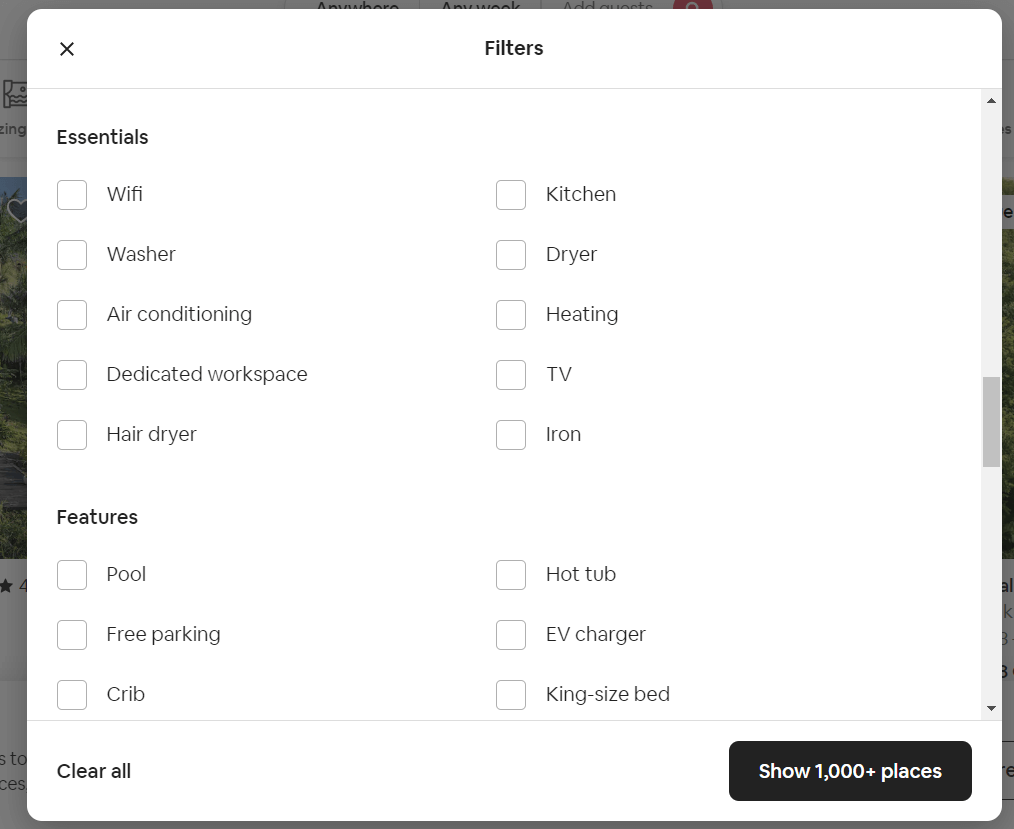
They can then set expectations through reviews that Airbnb has made front and center for each property.
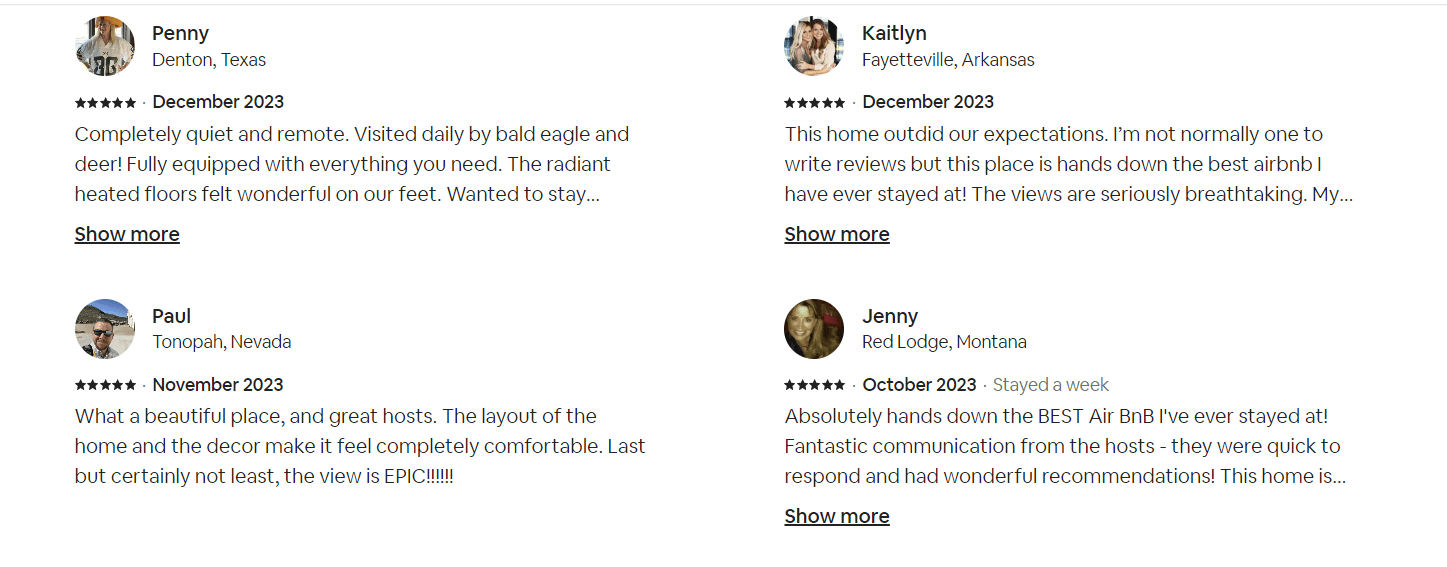
What makes Airbnb unique is the way it treats preferences with value. Each time a user engages with the platform, their preferences are remembered so that Airbnb can suggest personalized, relevant content.
Exceed guest expectations with the right technology
Your property’s technology should help you engage guests, personalize experiences, and exceed guest expectations, not get in the way. A hospitality platform with guest engagement functionality can help you personalize communications through SMS and chat, conduct mobile check-in, automate upsells, and send feedback surveys throughout the guest journey.
It’s also important to integrate key technologies, including customer relationship management platforms to better understand and market to guests, point of sale (POS) systems to streamline on-site purchases, and a cloud-based property management system to house guest information and facilitate seamless interactions.

